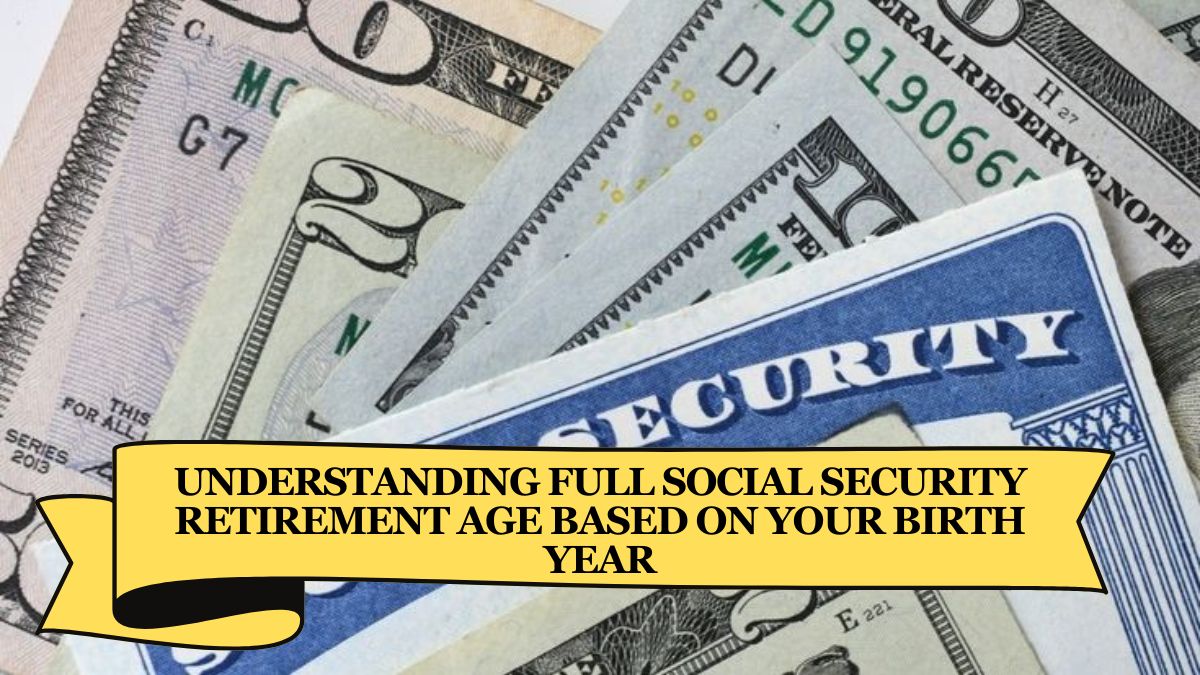Social Security benefits are essential for many people when they retire, and knowing when you can begin receiving them is crucial for planning your future. The Social Security Administration (SSA) offers a range of options to access retirement benefits, but the timing of when you start receiving these benefits affects the amount you receive each month. This article will explain how the full retirement age is determined based on your birth year and what options are available if you decide to retire early.
What is Social Security Retirement Age?
The full Social Security retirement age is the age at which you can begin receiving 100% of your monthly Social Security benefits without any reductions. The Social Security Administration (SSA) sets this age based on the year you were born. If you decide to start receiving benefits before reaching your full retirement age, the amount you receive each month will be reduced. On the other hand, if you delay your benefits, you may receive more each month.
Full Retirement Age Based on Your Year of Birth
Your full retirement age depends on the year you were born. Here’s a breakdown of how it works:
- If you were born between 1943 and 1954, your full retirement age is 66.
- If you were born in 1955, your full retirement age is 66 and 2 months.
- If you were born in 1956, your full retirement age is 66 and 4 months.
- If you were born in 1957, your full retirement age is 66 and 6 months.
- If you were born in 1958, your full retirement age is 66 and 8 months.
- If you were born in 1959, your full retirement age is 66 and 10 months.
- If you were born in 1960 or later, your full retirement age is 67.
For example, if you were born in 1960 or later, you will not be eligible for full Social Security retirement benefits until you turn 67.
Early Retirement and Benefit Reductions
You may be eligible to start receiving Social Security benefits as early as age 62, but this comes with a catch. If you begin receiving benefits before your full retirement age, your monthly benefits will be reduced. The reduction is calculated based on how many months you start receiving benefits before reaching your full retirement age.
For example, if you’re turning 62 in 2025 and your full retirement age is 67, you will face a reduction of about 30% in your benefits. This means you will only receive 70% of the full benefit amount. Specifically, the SSA reduces benefits by approximately 0.5% for each month you start early.
So, if you begin taking Social Security at age 62 instead of waiting until age 67, the reduction could be significant.
Working While Receiving Benefits
You can continue to work while receiving Social Security benefits, but this could impact how much you receive. The SSA sets an annual income limit that you can earn without having your benefits reduced. If your earnings exceed this limit, the SSA will reduce your benefits.
In 2025, if you’re under full retirement age, the SSA will reduce your benefits by $1 for every $2 you earn over $23,400. Once you reach your full retirement age (in this case, 67), the limit changes. You can earn up to $62,160 without any reductions, and if you exceed this amount, the SSA will reduce your benefits by $1 for every $3 earned over the limit.
Once you reach your full retirement age, your benefits will not be reduced, no matter how much you earn. However, it’s important to note that you can still apply for Social Security and continue working at any age, but if you are under the full retirement age, there will be limits on your earnings that could affect your monthly benefit amount.
How to Decide When to Retire
When to begin receiving Social Security benefits is a personal decision that depends on many factors. Some individuals may choose to retire early at age 62 for various reasons, such as health issues or wanting to enjoy life while they can. However, early retirement can mean less money each month, which might not be ideal for everyone.
Others may choose to wait until they reach full retirement age to receive their full benefit amount. Delaying benefits beyond full retirement age can also lead to higher monthly payments, but it’s important to weigh the pros and cons based on your financial situation and long-term plans.
Planning for Your Social Security Benefits
The key to making the best decision about when to start receiving Social Security benefits is to understand how early retirement and working during retirement can affect your benefits. Whether you decide to retire early or wait until your full retirement age, the more information you have, the better prepared you’ll be for making the best financial decision.
Taking the time to plan your retirement and calculate how much you’ll need for the future will help you live comfortably in your later years. Make sure to consider your health, income needs, and future goals when deciding on the right time to retire and apply for Social Security benefits.
Your Social Security retirement age is a critical factor in determining how much money you will receive in benefits each month. Understanding the rules around early retirement and the full retirement age based on your year of birth is essential for making informed decisions about your financial future. If you choose to retire early, you’ll receive less money each month, but if you wait until your full retirement age, you’ll receive a larger monthly benefit. By carefully considering your options and planning for the future, you can ensure a comfortable and secure retirement.m
Must Visit: California State Online

